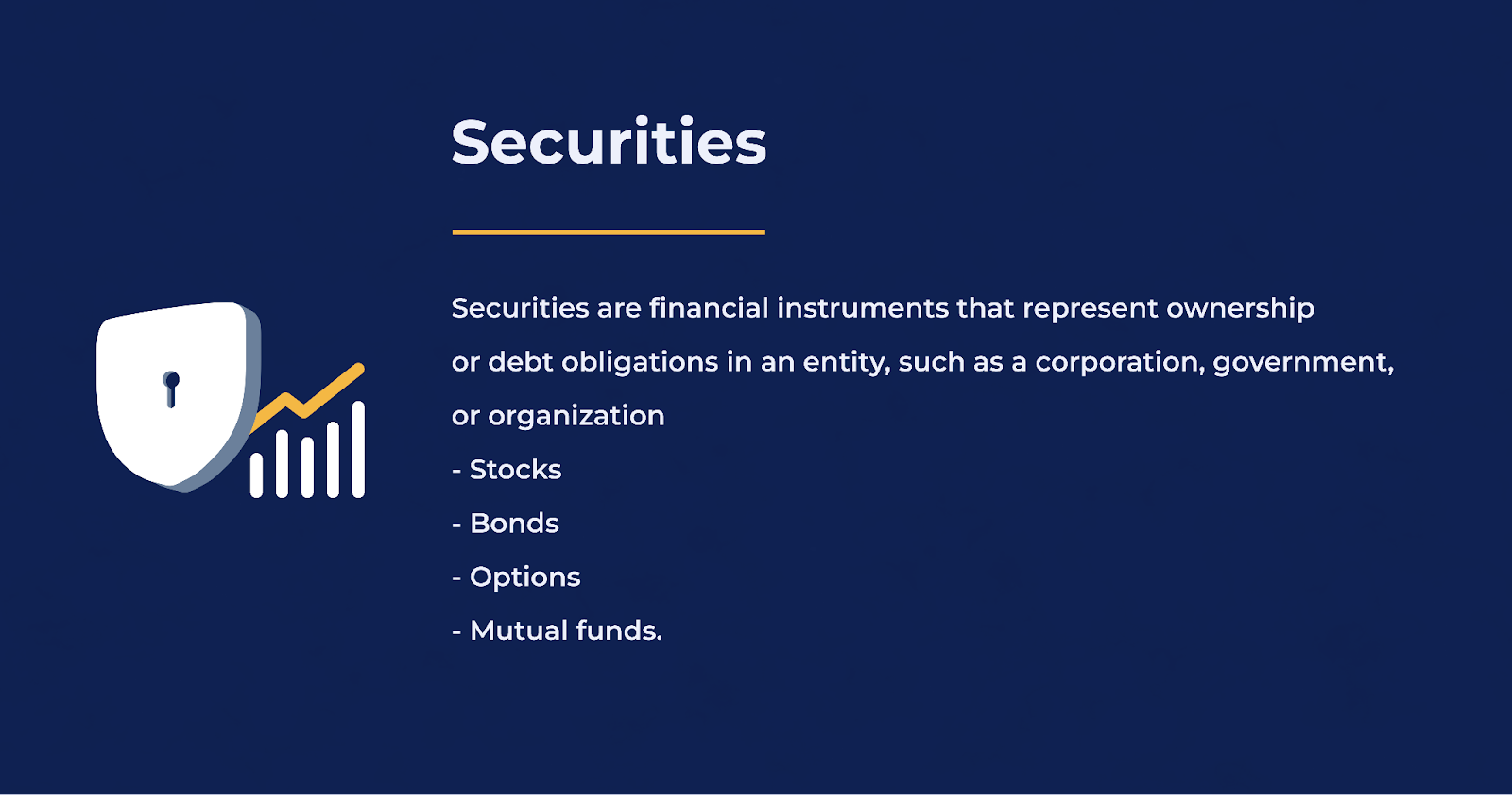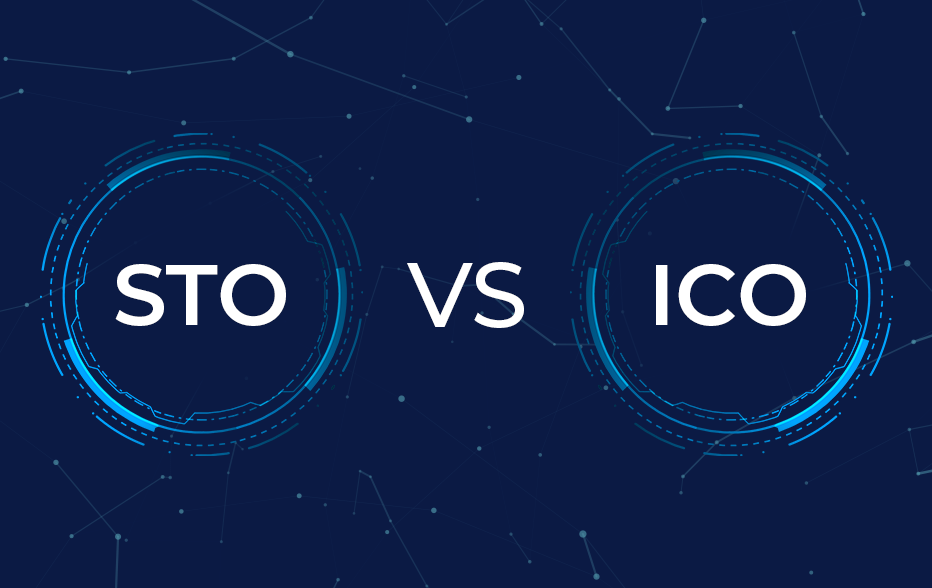Commodities Vs. Securities: What Is The Difference Between These Asset Classes
Meta Description: Learn about how cryptocurrencies are classified as either commodities vs securities.

The debate over whether cryptocurrencies should be classified as commodities like gold or securities like stocks has been ongoing for some time. This is important because commodities and securities are subjected to different regulatory laws by different government agencies.
In this article, we discuss commodities and securities, their differences, and how they relate to cryptocurrencies. We also go into details about the Howey Test, a set of criteria used to determine whether an asset is a security.
What are Commodities?
Commodities are basic goods or raw materials that are either consumed directly or used as a building block to create other products. They are generally interchangeable with other goods of the same type and are produced and traded in large quantities.
Traditionally, Commodities are categorized broadly into four categories: Agricultural products (like wheat and coffee), Energy resources (like crude oil and natural gas), Livestock and meat, Metals like gold and silver. But recently, commodities have extended beyond physical assets to include digital currencies like Bitcoin.

What are Securities?
Securities are financial instruments that represent ownership or debt obligations in an entity, such as a corporation, government, or organization. They are typically bought and sold in financial markets, allowing investors to participate in the growth or financing activities of the issuing entity.

Securities can take various forms, including stocks, bonds, options, and mutual funds. They play a crucial role in capital markets by facilitating capital allocation and risk among investors and issuers. Therefore, the securities market is overseen by regulatory agencies like the Securities and Exchange Commission (SEC) in the United States to protect investors and ensure fair trading practices.
Commodities Vs. Securities: What are the Differences
The key difference between a commodity and a security is simply the nature of the assets bought and sold. Commodities are tangible goods or raw materials that can be traded or exchanged, while securities represent ownership or debt obligation in an entity like an organization.
In terms of regulatory oversight, the trading of commodities and derivatives is regulated by the Commodity Futures Trading (CFTC) in the United States, while the Securities and Exchange Commission (SEC) oversees securities regulation.
Commodities Vs. Securities: Are cryptocurrencies a commodity or security?
While classifying an asset as a commodity or security is quite straightforward regarding traditional assets like gold and oil, it is not the same with cryptocurrencies. The debate over whether cryptocurrencies should be commodities or securities is a grey area in most countries. In fact, there might not be a one-size-fits-all solution because of the complex nature of the blockchain space.

For example, cryptocurrencies like Bitcoin and Ethereum may be classified as commodities because they were designed to act as a store of value or because of their decentralized nature. On the other hand, token types like security tokens are classified as securities because they represent shares of projects or a company.
The Howey Test is a set of criteria that determines if an asset should be classified as a security or commodity in the United States.
What is the Howey Test?
The Howey test is a legal framework outlined by the U.S. Supreme Court case named after a famous case, Howey vs. SEC, from 1946. The test is a set of four criteria that determines if a financial instrument should be considered an “investment contract” and, in turn, a security. Below are the four criteria of the Howey Test:
- Is the asset an investment of money?
- Is there an expectation of profits?
- Is there a common enterprise?
- Will there be reliance on the efforts of others?

An asset that meets all the criteria is considered a security in the U.S. and subjected to securities law. Let’s further break down these criteria to properly explain how the Howey test works.
An Investment of Money
Is the asset an investment of money? This means a monetary investment must be involved in a transaction from one party to the other.
For example, buying a security token to invest in an STO qualifies as an investment of money. But earning those shares by working in a startup and contributing only your time and expertise doesn’t qualify as an investment of money.
Expectation of Profits
Are you expecting profit from the investment? A reason for investing in the asset is to gain financial gain through the enterprise’s success or market movement.
For example, investing in a token because you expect an upward price movement to increase qualifies as an expectation of profits. But if you buy a valueless token for voting purposes on a DAO, it doesn’t meet this criteria.
A Common Enterprise
This criterion determines if the investors and enterprise(company) behind the asset are bound by a financial relationship. Are the gains from the asset tied to the enterprise’s success?
For example, the success of a decentralized network doesn’t depend on an enterprise (a controlling body) because it is decentralized. However, when you buy a dividend-bearing stock, your return on investment largely depends on the asset’s company.
Reliance on the Effort of Others
This last criterion measures how much the success of the investment depends on the effort of other individuals apart from the investor. An example that meets this criterion is investing in a web3 startup, where the success of your investment depends mostly on the team and managerial expertise behind the project.
There is no one-size-fits-all answer for cryptocurrencies since there are several types of tokens; depending on the nature of the blockchain and token, they may or may not pass the Howey Test.

Bitcoin is a commodity, for sure; CTFC classified it under the U.S. Commodity Exchange Act (CEA) in 2015. The SEC Chairman, Gary Gensler, further confirmed that Bitcoin is a commodity in 2022. When asked in his interview with CNBC in 2022, he said:
“Some, like bitcoin, and that’s the only one, Jim, I’m going to say because I’m not going to talk about any one of these tokens [that] my predecessors and others have said [are] a commodity.”
The regulatory claims for Ether are a grey area; the CTFC Chief, Rostin Beham, considers Ether a commodity. In the CTFC case against Binance in 2023, the agency accused Binance of illegally trading several cryptocurrencies—Bitcoin, Ether, Litecoin, USDT, and BUSD—considered commodities. Binance pleaded guilty to these charges and agreed to pay $4B in penalty.
On the other hand, the SEC chair, Gary Gensler, thinks that Ether and other proof-of-stake tokens should be considered securities. In his opinion, proof-of-stake tokens can pass the Howey Test and qualify as securities. SEC sued Coinbase in 2023 for facilitating the trading of 13 tokens, including Solana, Polygon, Cardano, Filebox, Near, Nexo, Dash, Sandbox, and Voyager.
The agency also charged Kraken over its stacking-as-a-service in 2023, stating that it failed to register the program with the SEC. In the end, Kraken agreed to stop the program and pay a $30 million fine to settle the charge.
Security vs commodity: Why does it matter in Cryptocurrency?
Crypto companies must be aware of the type of assets they offer to ensure full compliance with regulatory oversight. To do this, the token must be properly classified as either a commodity or security. Crypto exchanges are not exempt from this compliance; an exchange needs to be registered to trade securities before trading tokens considered securities.
The penalties for non-compliance with the securities regulations can be severe, including hefty fines and legal actions. For example, in the case of the SEC against Ripple Labs, in December 2020, the SEC brought up a case against Ripple because it failed to register as a securities dealer.
Although Ripple won partially against the SEC, the court ruled they didn’t break the law when XRP was sold on public exchange. The case highlights the importance of proper classification and regulation compliance.
In the case of ICOs (Initial Coin Offerings) and STOs (Security Token Offerings), completing all the regulatory requirements and trading on a registered Exchange is crucial. Generally, a company can’t sell securities unless it is fully registered with the SEC or falls within an exemption (Reg D and Reg S) class.
The best bet is to work with a team of experts like the one at INX to help you through the process. INX provides a complete security tokenization service, including registration with the SEC and helping companies comply with all regulations.
We have completed a full cycle of the STO process, as the INX Token was the first publicly SEC-registered security token.
FAQ
- What are the consequences of misclassifying a cryptocurrency?
Misclassifying a cryptocurrency can result in regulatory scrutiny, enforcement actions, fines, and legal liabilities for issuers, investors, and exchanges. It can also undermine investor confidence, disrupt market stability, and hinder the growth and adoption of cryptocurrencies.
- Is Bitcoin a Security?
Bitcoin is not considered a security by regulatory authorities in the United States, such as the Securities and Exchange Commission (SEC). Bitcoin is widely regarded as a decentralized digital currency or cryptocurrency, designed to operate as a peer-to-peer electronic cash system without the need for intermediaries like banks or governments.
- How does the Howey Test apply to cryptocurrencies?
The Howey Test, established by the U.S. Supreme Court, is used to determine whether a transaction qualifies as an “investment contract” and thus a security. Cryptocurrencies and token offerings are assessed against the criteria of the Howey Test to determine their classification under securities laws.
- Is Ethereum a Security?
Ethereum, like Bitcoin, is not classified as a security by regulatory authorities in the United States. Ethereum’s decentralized nature, open-source protocol, and lack of a central issuer or controlling entity differentiate it from traditional securities and investment contracts.
- How can crypto companies ensure regulatory compliance?
Crypto companies can ensure regulatory compliance by conducting thorough legal and regulatory assessments, engaging with regulatory authorities, implementing robust compliance programs, and adhering to industry best practices and standards. Seeking legal counsel and expert opinions is essential to effectively navigate the complex regulatory landscape. If you need help with reg.
The INX Digital Company INC March 19, 2024
The INX Digital Company inc. is an expert in the field of finance, crypto and digital securities.





